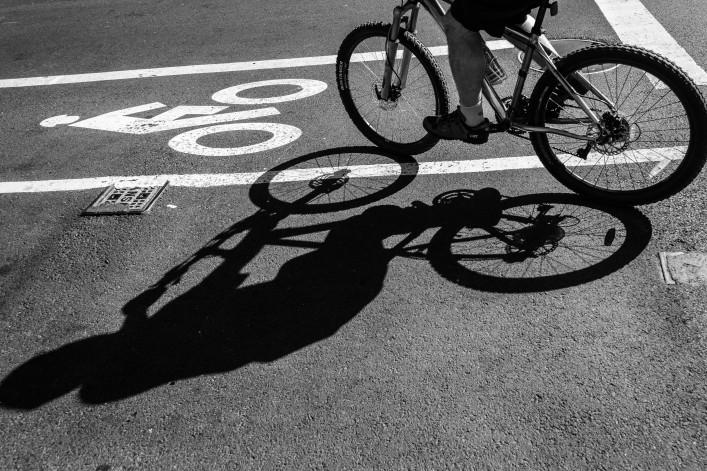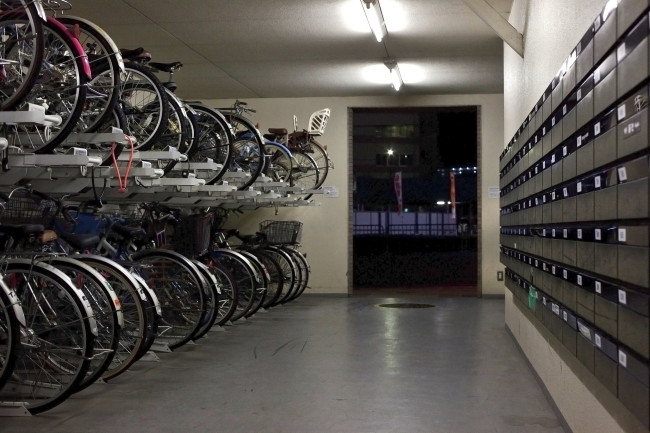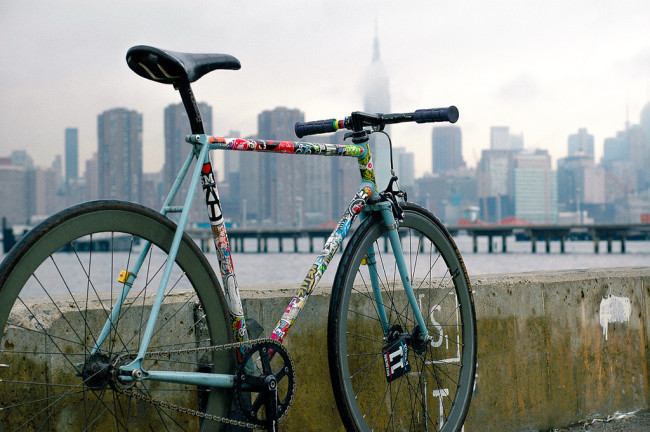How one Brooklyn bike co-op makes getting around NYC easier
For New Yorkers seeking an alternative to the stress of dealing with frequently delayed, jam-packed subways and buses on their daily commutes—or more exercise while covering more ground than they can get walking—cycling is an increasingly convenient alternative. Hence the increasing popularity of Citi Bikes—on February 28, for instance, New Yorkers took 41,719 trips in a span of 24 hours—and the city's effort to make the boroughs more bikeable; Streetsblog reports, for instance, that the Department of Transportation is creating protected bike lanes on a stretch of Fifth Avenue that's currently treacherous for non-drivers.
At the same time, though, getting into the world of cycling can be a bit daunting. For many, it's not just a way of getting around town, but a lifestyle, complete with its own terminology. It can also be quite a financial investment, as well as a challenge when it comes to learning how to stay safe on heavily trafficked city streets.
This is where the NYC Mechanical Gardens Bike Co-op comes in. The Williamsburg-based group, the only one of its kind in the city, operates out of a church basement and is devoted to helping New Yorkers learn about bike maintenance and safety at low cost.
Alexis Danzig, who has been working with the all-volunteer organization since its inception--it soft-opened in St. John's Church on Maujer Street last fall--says it's a place that anyone can visit for inexpensive repairs and classes, where there's little hierarchy between the people using the space and those running it. (Some other co-ops, by contrast, operate as membership organizations, where paying a monthly or annual fee entitles you to cheaper services.)
Bike co-ops provide services distinct from ride share programs like NYC's Citi Bike, Danzig explains: "We're not a threat or rival to bike share programs, which are expensive. We capitalize on being in a city where there's a lot of wealth and people discard bikes or bike parts."
The co-op doesn't rent bikes, but rather focuses on educating bike owners and helping them with hands-on upkeep. Danzig says the services offered by groups like this one can vary in their teaching programs, but usually concentrate on bike repair and maintenance.
To this end, the co-op repurposes donations to help locals get their bikes back in working order. "Most people show up with their bikes having a problem. We may charge for parts, but not very much," Danzig says. (She estimates that people typically will pay $3 to $25 depending on the part; there's no charge to attend the co-op's lessons and events.) "People come in and have a bike with a chain that needs to be replaced, or an axle that isn't working property. Someone will show you and help you to fix it to the extent you wish to be shown and helped."
The idea is that by empowering people to handle repairs affordably, the co-op is helping to support and encourage a culture of health, movement, and adventure in the city through cycling. The group's schedule of events and classes (listed on their Facebook here), which includes bike maintenance intensives and movie nights, further serves to bolster a sense of community among local cyclists. Danzig adds that while the co-op loves when people come and volunteer, it's not a requirement for using its services.
"We live in a city that has a lot of inequity, and it is very expensive for some families to afford mobility," Danzig points out. "Part of social justice for us is just putting the tools for mobility in the hands of everyone who wants them."
In some other cities, like Chicago, there's a more established bike co-op culture. The Windy City's Working Bikes, for instance, is a 501(c)3 with a bike shop as well as drop-off points throughout the city, and donates refurbished bicycles both globally and locally. And West Town Bikes offers youth and adult programs on bike building and mechanics.
Danzig attributes the lack of co-ops in NYC to the cost of real estate. "You need space to run one of these," she says, and that space comes at a premium. "We were lucky because the people who make up our coop are plugged in to the community, and we found ourselves the recipients of a lot of largesse."
In the meantime, the co-op offers drop-in hours on Mondays from 6 pm to 9 pm in addition to its schedule of events, and also operates a mobile mechanic outfit at events like Summer Streets. Such ventures are funded, Danzig says, by donations, grants, volunteer work and "sweat equity."
"We look forward to being a part of more things that are happening," Danzig says. "Biking needs to be understood as a public good in a more substantial way."
You Might Also Like





























